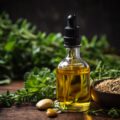What is the Scalp Microbiome?
Your scalp is home to a thriving ecosystem of microorganisms, collectively known as the scalp microbiome. This intricate community consists of bacteria, fungi, and other microscopic organisms that play a crucial role in maintaining the health of your scalp and hair. Just like the gut microbiome has gained attention for its impact on overall health, the scalp microbiome is now recognized as a key factor in hair and scalp wellness.
Understanding and nurturing your scalp microbiome can lead to healthier, more vibrant hair and a comfortable, balanced scalp. Let’s explore this fascinating world and learn how to care for our scalp’s microscopic inhabitants with compassion and mindfulness.
The Importance of a Balanced Scalp Microbiome
A balanced scalp microbiome is essential for maintaining scalp health and promoting hair growth. When in harmony, these microorganisms work together to:
- Protect against harmful pathogens
- Regulate oil production
- Maintain proper pH levels
- Support a healthy scalp barrier
- Contribute to optimal hair growth conditions
When the delicate balance of the scalp microbiome is disrupted, it can lead to various issues such as dandruff, itchiness, excessive oiliness, or dryness. By understanding and supporting our scalp’s microbial community, we can promote overall scalp health and create an environment where our hair can thrive.
Factors Affecting the Scalp Microbiome
Several factors can influence the composition and balance of your scalp microbiome:
- Hair care products: Harsh shampoos, styling products, and treatments can disrupt the natural balance of your scalp microbiome.
- Diet and nutrition: What you eat can impact the health of your scalp microbiome, just as it affects your gut microbiome.
- Stress: High levels of stress can negatively impact your scalp’s microbial balance.
- Environmental factors: Pollution, climate, and UV radiation can all influence your scalp microbiome.
- Age and hormones: Changes in age and hormone levels can affect the composition of your scalp’s microbial community.
Being mindful of these factors can help you make informed choices to support a healthy scalp microbiome.
Nurturing Your Scalp Microbiome with Kindness
Caring for your scalp microbiome doesn’t have to be complicated. Here are some gentle, compassionate ways to support your scalp’s microbial health:
- Choose gentle, microbiome-friendly hair care products: Look for sulfate-free shampoos and products that support a healthy scalp pH.
- Practice scalp massage: Gently massaging your scalp can improve blood circulation and distribute natural oils, supporting a healthy microbiome.
- Embrace a balanced diet: Nourish your body and scalp with a variety of whole foods, including fruits, vegetables, and probiotic-rich foods.
- Manage stress: Incorporate stress-reduction techniques like meditation, yoga, or deep breathing exercises into your routine.
- Limit heat styling and harsh treatments: Give your scalp a break from excessive heat and chemical treatments to allow your microbiome to thrive.
Remember, every scalp is unique, so be patient and gentle with yourself as you explore what works best for your scalp microbiome.
The Future of Scalp Microbiome Research
As our understanding of the scalp microbiome grows, exciting developments are on the horizon. Researchers are exploring new ways to support scalp health through targeted probiotics, personalized hair care routines, and advanced diagnostic tools to analyze individual scalp microbiomes.
These advancements hold promise for addressing a wide range of scalp and hair concerns, from dandruff and hair loss to more severe conditions like seborrheic dermatitis. By embracing a holistic, microbiome-centered approach to scalp care, we can look forward to healthier, happier scalps and hair in the future.
Frequently Asked Questions (FAQ)
1. How often should I wash my hair to maintain a healthy scalp microbiome?
The ideal washing frequency varies from person to person. Generally, aim to wash your hair 2-3 times a week using a gentle, sulfate-free shampoo. This allows your scalp’s natural oils to nourish your hair and microbiome without over-cleansing.
2. Can probiotics help improve my scalp microbiome?
While research is ongoing, some studies suggest that topical and oral probiotics may benefit the scalp microbiome. Consider incorporating probiotic-rich foods into your diet or look for hair care products containing probiotic ingredients.
3. How does stress affect my scalp microbiome?
Stress can disrupt the balance of your scalp microbiome, potentially leading to issues like dandruff or excessive oil production. Managing stress through relaxation techniques and self-care can help maintain a healthy scalp environment.
4. Are natural oils good for my scalp microbiome?
Many natural oils, such as coconut oil, jojoba oil, and tea tree oil, have antimicrobial properties that can support a healthy scalp microbiome. However, it’s essential to use them in moderation and choose oils that work well with your specific scalp type.
5. How long does it take to see improvements in my scalp microbiome?
The time it takes to see improvements can vary depending on your individual scalp condition and the changes you implement. Generally, you may start noticing positive changes within a few weeks to a couple of months of adopting a microbiome-friendly hair care routine. Be patient and consistent with your approach for the best results.
By understanding and nurturing your scalp microbiome with kindness and care, you’re not just promoting healthier hair – you’re embracing a holistic approach to self-care that recognizes the interconnectedness of our body’s ecosystems. Remember, a healthy scalp microbiome is a journey, not a destination. Be gentle with yourself, stay curious, and enjoy the process of discovering what works best for your unique scalp and hair.









